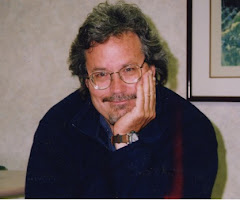
How very interesting it is to look into these sermons of my grandfather and find little pearls. This snippet was in an envelope (See my introduction here) with a return address printed as follows:
The Morrow Memorial Home For The Aged
Sparta, Wisconsin
R. Harold Gee, President
711 Division St., La Crosse, Wisconsin
As was his habit, he'd listed on this envelope all of the locations and dates on which the sermon had been given. This was first given in "Salzer. La x" [LaCrosse] on Feb. 28, 1943. It was given fifteen more times (!) in 1944, and was last given the year I was born, 1953. It was given in Sparta, Soldiers Grove, Red Mound, Liberty Pole, Necedah, New Lisbon, Arkansaw, Durand, Neillsville, Reedsburg, North Freedom, and Baraboo, among many others. I do believe that by this time he had district responsibilities which explains the frequent repetition of the sermon in so short a time.
Here is that snippet:
John 17,19 "For their sakes I sanctify myself"
I was born and raised in a small town. I suspect I give some indications of it, for only last week a chicago street car conductor, with a look of disgust, asked me if I did not know which end of a street to get on. For some things however I am still thankful-- for the place of my birth [He was born in the midlands, England]. We knew nearly everybody in our town, and pretty near everything about them. We had a few "Characters". You know what I mean. One was Stephen ART. Not Hart. Everybody called him STIVVY. He was a dirty, Smelly, old batchelor when I was a boy. He made his living by ratcatching. He lived alone--with his dogs and ferrets--in an alley across the tracks. He had but few friends among NICE people--poor fellow. But with his sack on his back and his dogs at his heels he was interesting to boys. One night three or four of us lads went over by his little place, and attracted by the candlelight thro the window decided to peek in. He was kneeling by his bedside saying "Goodnight" to God. I caught the words "Forgive us our trespasses as we forgive those who trespass against us." I tell you that was a great thing for a boy to see and hear. A man reveals his soul when he prays for only God to hear."
For some reason, except for a few handwritten notes, the sermon stops there. On the next page he rewrote the sermon, and it is clearly written for the particular time he lived in, for he refers to the war and to the suffering of Christians in China and Europe. At a later time I'll transcribe this sermon in full for you. Stay tuned.







